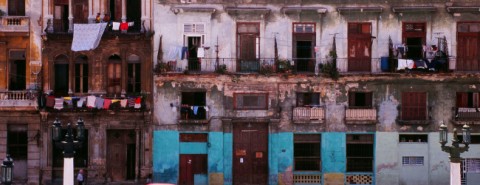Imagining Cuba’s future

Cuba is nothing like as central to U.S. policy as it once was, but that may change when the current regime either implodes or accelerates its tentative steps toward liberalization.
At present, Cuba survives only on massive handouts from Venezuela, which could be curtailed overnight. If and when Cuba leaves its bubble, it will undergo a rapid social and political transformation. What intrigues me is the question of how the nation’s religious landscape will change and how much we can learn about that from the experience of comparable societies.
When Fidel Castro began his rule, he declared Cuba an atheist state. Religious persecution has been commonplace ever since, though never as bloodthirsty as in, say, North Korea, and the degree of official intolerance has fluctuated over time. Pope John Paul II’s visit in 1998 significantly improved official relations with the Roman Catholic Church.




